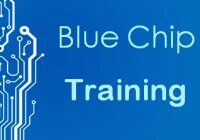CompTIA Cloud Essentials+ Course Overview
CompTIA is the main supplier of seller impartial accreditations on the planet. It offers sixteen accreditation tests in PC support, organizing, servers, preparing, Linux, security, IT deals, green IT, and the sky is the limit from there. CompTIA has been conveying accreditation tests for over fifteen years, and is focused on consistently improve the administration gave to the business.
The Cloud Essentials test covers six zones, every one of which is characterized and point by point all through the course. They are the attributes of cloud administrations from a business viewpoint, the business esteem offered by distributed computing, the specialized points of view engaged with distributed computing, steps to effective selection of cloud, effect and changes of distributed computing on IT administration the executives, and the hazard and results of distributed computing.
Target Audience :
The accompanying classifications of experts can take the CompTIA Cloud Essential test and acquire the confirmation :
- Project supervisor
- Manager
- Cloud Engineer
- Business Analyst
- Cloud Consultant
- Technical Architect
Module 1: Cloud Principles and Design
- Understanding Cloud Principles
- Virtualization
- Service Models
- Deployment Models
- Cloud Characteristics
- Shared Responsibility Model
- Exploring Cloud Design
- Redundancy and High Availability
- Disaster Recovery
Module 2: Cloud Networking and Storage
- Understanding Cloud Networking Concepts
- Networking: A Quick Primer
- Connecting to the Cloud
- Cloud Networking Services
- Understanding Cloud Storage Technologies
- How Cloud Storage Works
- Cloud-Based Storage Providers
- Cloud Storage Terminology
- Content Delivery Networks
Module 3: Assessing Cloud Needs
- Using Cloud Assessments
- Gathering Current and Future Requirements
- Using Baselines
- Running a Feasibility Study
- Conducting a Gap Analysis
- Using Reporting
- Understanding Benchmark
- Creating Documentation and Diagrams
- Understanding Cloud Services
- Identity Access Management
- Cloud-Native Applications
- Data Analytics
- Digital Marketing
- Autonomous Environments
- Internet of Things
- Blockchain
- Subscription Services
- Collaboration
Module 4: Engaging Cloud Vendors
- Understanding Business and Financial Concepts
- Expenditures and Costs
- Licensing Models
- Human Capital
- Professional Services
- Finding and Evaluating Cloud Vendors
- Gathering Information
- Performing Evaluations
- Negotiating Contracts and Billing
- Choosing a Migration Approach
- Migration Principles
- Lift and Shift
- Rip and Replace
- Hybrid and Phased Migrations
Module 5: Management and Technical Operations
- Explain Aspects of Operating within the Cloud
- Data Management
- Availability
- Disposable Resources
- Monitoring and Visibility
- Optimization
- Explain DevOps in Cloud Environments
- Provisioning
- Continuous Integration/Continuous Delivery
- Testing in QA Environments
- Configuration Management
- API Integration
- Financial Planning of Cloud Resources
- Storage
- Network
- Compute
- Chargebacks
- Maintenance
- Instances
- Licensing Types
- License Quantity
- Recognize Risk Management Concepts Related to Cloud Services
- Risk Assessment
- Risk Response
- Documentation
- Vendor Lock-in
- Data Portability
- Explain Policies or Procedure
- Standard Operating Procedures
- Change Management
- Resource Management
- Security Policies
- Access and Control Policies
- Department-Specific Policies
- Communication Policies
Module 7: Compliance and Security in the Cloud
- Identify the Importance and Impacts of Compliance in the Cloud
- Data Sovereignty
- Regulatory Concerns
- Industry-Based Requirements
- International Standards
- Certifications
- Explain Security Concerns, Measures, or Concepts of Cloud Operations
- Threat
- Vulnerability
- Security Assessments
- Data Security
- Application and Infrastructure Security

